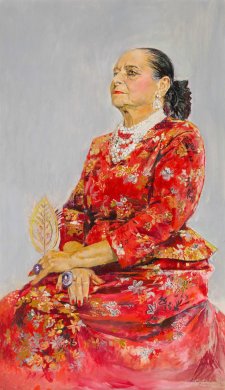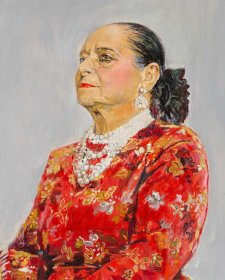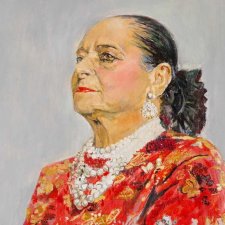Faith Bandler AC (1920–2015), civil rights activist and writer, was born in Tumbulgum, NSW, to a Scottish-Indian mother and a cane-worker father from what is now Vanuatu. Settling in Sydney after the war, she began to work full time on Indigenous issues, co-founding the Australian-Aboriginal Fellowship in 1956 and becoming a founding member of the Federal Council for the Advancement of Aboriginals and Torres Strait Islanders in 1957. Within FCAATSI she directed the ten-year campaign towards the constitutional referendum of 1967. It is widely acknowledged that her charisma and public speaking skills were fundamental to the outcome of the referendum, in which more than 90 per cent of voters endorsed the removal of provisions from the Constitution that discriminated on the basis of race. After leaving FCAATSI, she was central to the foundation of the Australian South Sea Islanders United Council. Bandler wrote five books, including Wacvie (1977), a biographical novel about her father, who was taken from his home and enslaved on a sugar plantation in Queensland at the age of twelve.
Sculptor Julie Edgar deeply admires Bandler and wanted to portray her inner confidence in this work. Edgar's busts are created in many stages, involving building up a clay sculpture; forming wax and rubber moulds; bronze casting; and then grinding, rubbing back and detailing through patination.
Purchased 2007
© Julie Edgar



On one level The Companion talks about the most famous and frontline Australians, but on another it tells us about ourselves.



Well behaved women seldom make history, as the saying goes, and the National Portrait Gallery, consequently, is full of awesome Australian women who refused to conform to narrow ideas about their place and their worth.



Visit us, learn with us, support us or work with us! Here’s a range of information about planning your visit, our history and more!